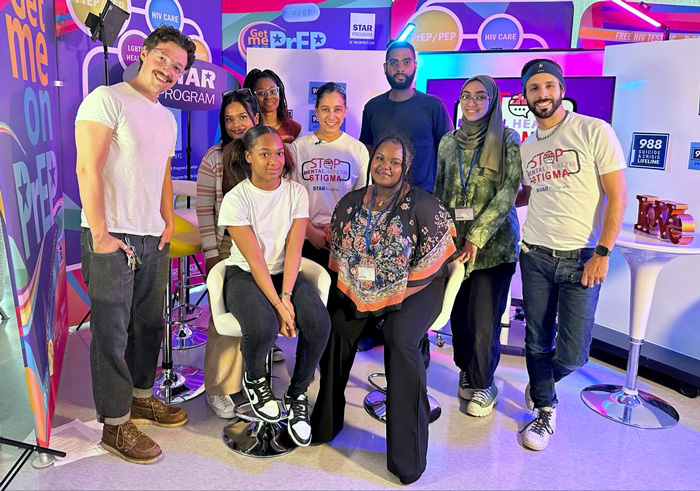In an era where mental health discussions are often shrouded in misunderstandings and misconceptions, the “Stop Mental Health Stigma” campaign emerges as a beacon of hope and enlightenment. Spearheaded by the STAR Program at SUNY Downstate Health and Sciences University and generously funded by the New York State Office of Mental Health, this initiative seeks to dismantle the barriers of stigma surrounding mental health care. Through the dedicated efforts of individuals like Jose Iorio, a media and marketing consultant for the STAR Program, and Michelle Melendez, MS, LCSW, CHC, the Behavioral Health Director at STAR Health Center, the campaign is making significant strides toward creating a more understanding and supportive society.

The STAR Program’s Stigma Reduction Project interviewed
people with lived experience and mental health service providers.
The Power of Social Media in Combatting Stigma
Jose Iorio’s insights reveal the pivotal role of social media in altering perceptions and encouraging open dialogues about mental health. By leveraging platforms that reach millions daily, the campaign employs a variety of content formats — from informational posts and personal testimonials to roundtable discussions and interactive quizzes. These efforts aim to educate and foster a sense of community and inclusivity, indirectly touching the lives of those grappling with mental health issues.
Collaborating with organizations like The Adolescent Education Program (THEO Program) further amplifies the campaign’s message, extending its reach and impact. It’s a testament to the power of unity in addressing complex societal challenges.
Engaging Content, Engaging Minds
The STOPMentalHealthStigma.com website serves as the campaign’s central hub, offering a wealth of resources, information, and engaging activities designed to challenge stigma. Its success is evident in the diversity of its users and the depth of engagement, as evidenced by the significant traffic it has attracted since its inception. This engagement provides valuable insights into public attitudes towards mental illness and stigma, highlighting the widespread need for love, support, and understanding.
A Community United
Michelle Melendez shares the campaign’s multifaceted approach, which extends beyond online efforts to include suicide prevention training, Mental Health Awareness Month activities, and workplace mental health strategies. Particularly noteworthy is the campaign’s focus on listening to and incorporating the experiences of high school and early college students, especially within African American and Caribbean communities. This inclusive strategy ensures that the voices of those most affected by stigma are heard and valued, fostering a culture of empathy and support.
Looking Forward
The findings from the campaign underscore the importance of targeted outreach, particularly towards younger and male audiences who may be less represented yet profoundly affected by mental health stigma. The collected demographic data serves as a crucial guide for future initiatives, ensuring that efforts are directed where needed most.
As we reflect on the achievements of the “Stop Mental Health Stigma” campaign, it’s clear that the journey towards a stigma-free society is a collective one. Through education, engagement, and empathy, we can all contribute to a future where mental health is understood, accepted, and supported. The STAR Program’s initiative is not just a campaign; it’s a movement toward hope, healing, and, ultimately, change.
Michelle Melendez, MS, LCSW, CHC, is Behavioral Health Director and Jose Iorio is Media and Marketing Consultant at the STAR Health Center at SUNY Downstate Medical Center. For any questions, please email michelle.melendez@downstate.edu or jose.iorio@downstate.edu.
This project was funded by the New York State Office of Mental Health and the New York State Tax Check-off Funds for Mental Health Stigma Reduction.






